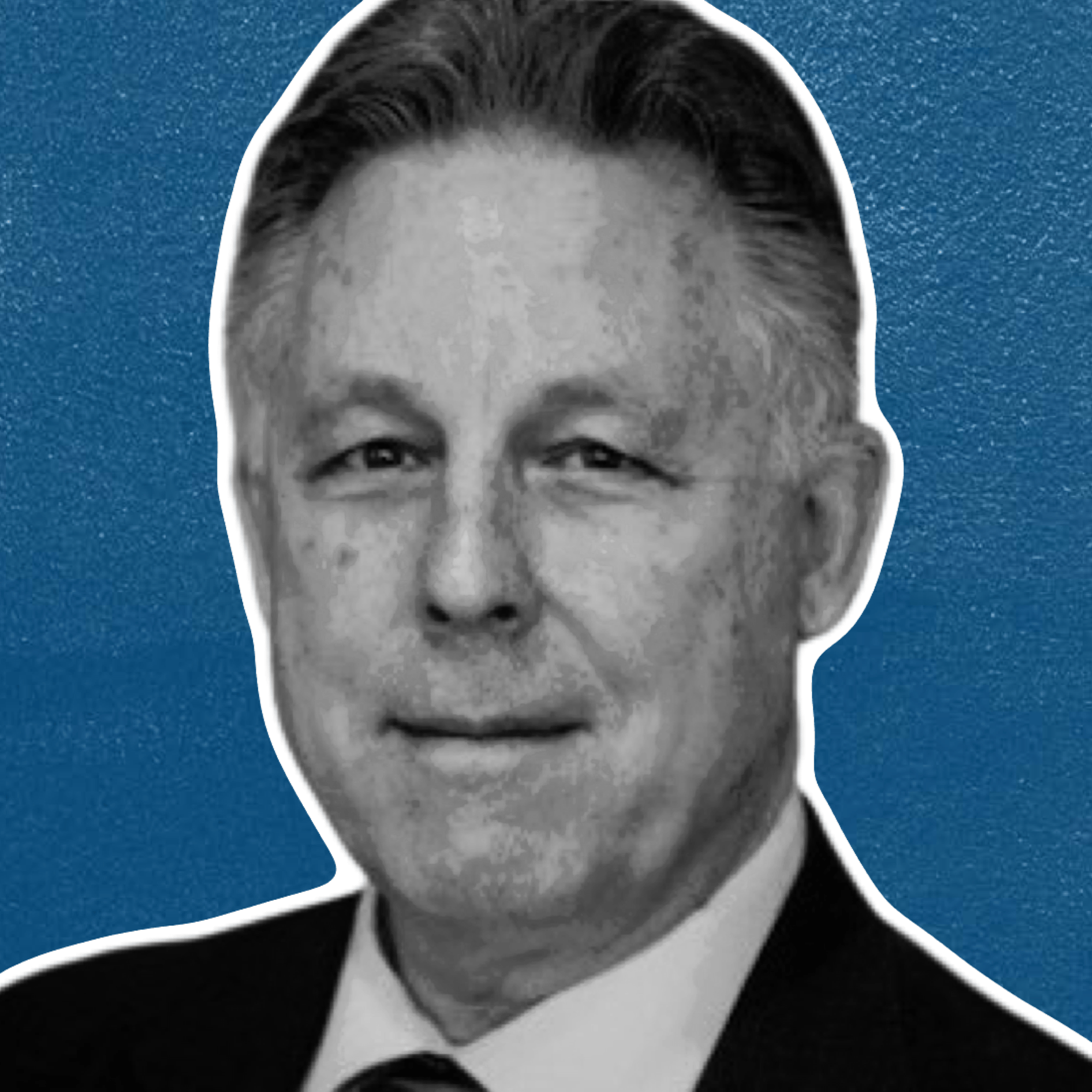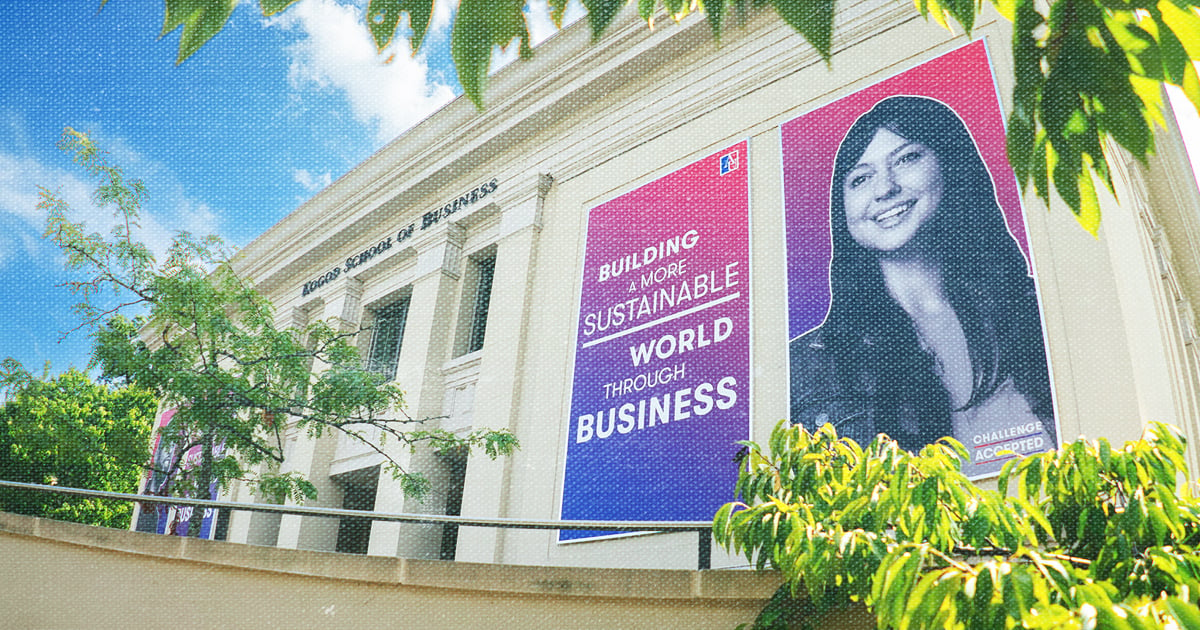
Caleb Ogilvie
This piece originally appeared in The Eagle Online and was written by Caleb Ogilvie with editing from Soumya Sahay, Clair Sapilewski, Sara Winick and Abigail Pritchard and copy-editing by Luna Jinks, Isabelle Kravis and Charlie Mennuti. Click here to see the original piece on their site.
After finishing her journalism and graphic design undergraduate studies at Southern Methodist University, Zoë Mattioli knew her career needed to pivot to sustainability. Now an American University graduate student, she said lobbying for environmentalist causes was most pressing because of the worldly implications of climate change.
“We can’t have events, we can’t have businesses, we can’t travel the world if everything is in crisis,” Mattioli said.
Mattioli also knew employers wanted people with business skills when recruiting. So, she decided to take classes in the Kogod School of Business’s Sustainability Management Masters program.
She, and other students, have used the program to pitch sustainability projects to organizations like the World Wildlife Fund, create responses to a Congressional hearing and manage teams of students developing a sustainability project.
“It’s really crazy to think how quickly I’ve learned so many things,” Mattioli said.
This academic year, Sustainability Management faculty are teaching graduate students more business skills than ever before.
Leaders added new analytics, entrepreneurship and finance courses to the 11-year-old program in the fall 2023 semester, according to the Kogod website. The curriculum additions come as businesses are looking to make their operations more environmentally friendly, according to Program Director David Bartlett.
“There’s an obvious premium on students who can combine a knowledge of sustainability core business skills, but also analytical or quantitative skills,” Bartlett said in an interview with The Eagle. “We’re hearing a lot about that, so we’ve kind of prioritized that in our curriculum.”
Students in the program take a mix of business courses, specialized sustainability courses and courses outside Kogod, which few other programs offer, according to Bartlett.
Across the curriculum, courses focus on policies, laws, non-governmental organizations, environmental science and business, and include faculty from those specialties, according to Bartlett.
All the while, Bartlett said, the program has “an explicit, unapologetic business perspective on sustainability.”
To him, that focus matches businesses’ roles in combating climate change. Young people and profits are favoring sustainability, so business leaders are valuing it more, he said.
“The really successful businesses take sustainability seriously and they’re embedding it in their strategy, in their human resource relations, in their strategic partnerships, in their product design and so on,” Bartlett said.
Those businesses, in turn, can help push environmentalism, he said.
We have no hope of addressing global climate change or addressing any of the challenges of sustainability without the involvement of the business sector."

David Bartlett
Sustainability Management Program Director, Kogod School of Business
The program utilizes experts from across the D.C. area through guest lecturers, internship and job opportunities and feedback for changing the program, according to Associate Program Director Julie Anderson.
Anderson said faculty talk with experts in business and sustainability fields to improve the curriculum and courses. Then, many experts come to speak to students.
During Kogod’s 2023 “Changemakers in Sustainability” series, for example, students heard from people like Seth Goldman, co-founder of sustainable foods company Eat the Change, Marriott CEO Anthony Capuano and Soupergirl Co-founder Sara Polon, according to Kogod’s website.
“Students hear the benefit of somebody who’s living and working in the space and can lean on them for advice,” Anderson said. “I also learn a lot from them. What are the topics? What are their needs? And then it’s just building the network.”
Anderson said she hopes that network can include more AU alumni as well.
“Anybody who’s graduated from American University and is out there in the field working is a potential company that we can engage with and make sure that we let them know about our program,” Anderson said.
The students then meet the experts where they are during their capstone class. According to the Kogod website, classes travel internationally to learn about sustainability in various industries and cultures.
These experiences and curricula attract students passionate about sustainability, according to Anderson. She said she’s seen students form friend groups out of the program and wants to make more room for that bonding in the program and in her classes.
“Eventually, they could be starting a company together,” Anderson said.
The program also attracts passionate faculty, according to Anderson. She said Dean of Kogod David Marchick has spent time talking with businesses and increasing the program’s resources.
“It tends to build on itself, so you attract top talent,” Anderson said. “When you have that history, that knowledge base and a body of faculty that are doing research in sustainability, it attracts others.”
All of these things attracted Mattioli when she was deciding how to pursue a sustainability career. She said the program’s emphasis on business and policy particularly piqued her interest in lobbying.
I think there’s a lot of power in that a lot of players have used lobbying to perpetuate the climate crisis, that I would love to be on the side of using that same power to progress our future to a more sustainable climate."

Zoë Mattioli
MS in Sustainability Management Student, Kogod School of Business
Although she said finance courses challenged her and she wished the program emphasized the sciences more, the lessons, professors and students made her “feel like a whole new person leaving this program.”
Mattioli said her professors and peers came with a variety of backgrounds and passions that allowed her to use business to fix climate change.
“We’re trying to protect cultures and countries that could be underwater in 10 years,” she said. “We are trying to not just build a future where people are existing. We want people to be thriving.”
